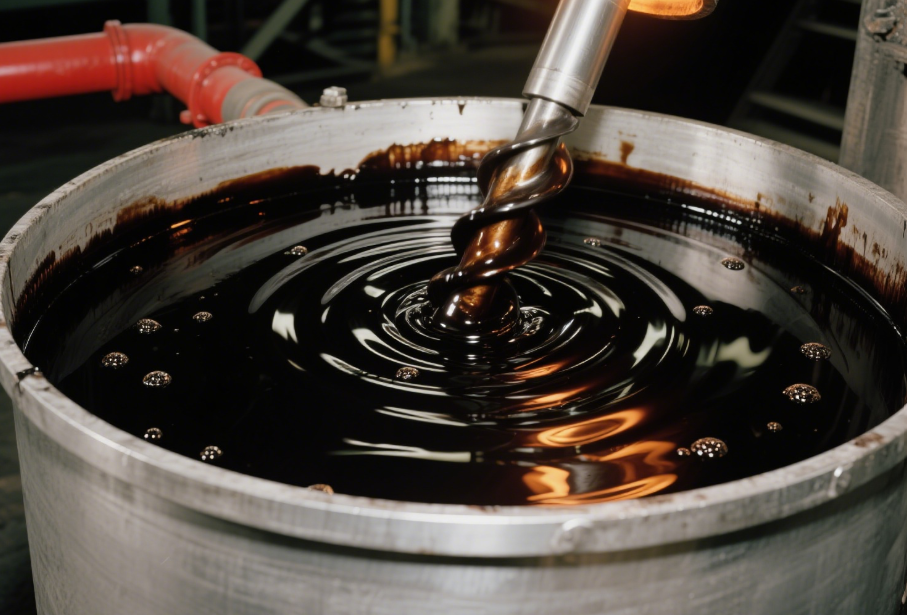What is Asphalt?
Asphalt, also known as bitumen, is a sticky, black, and highly viscous liquid or semi-solid form of petroleum. It is widely used in road construction, roofing, and waterproofing due to its durability and flexibility. Asphalt plays a crucial role in modern infrastructure, providing a reliable and cost-effective solution for various applications. Its unique properties make it an essential material for building roads, driveways, and other surfaces.

Asphalt is composed of a mixture of aggregates, binder, and filler. The aggregates are usually sand, gravel, or crushed stone, while the binder is a petroleum product. This combination creates a strong and durable material that can withstand heavy loads and harsh weather conditions. Asphalt is also recyclable, making it an environmentally friendly choice for construction projects. For accurate project planning, you can use our asphalt calculator to estimate material requirements.
History and Origin of Asphalt
The use of asphalt dates back thousands of years. Ancient civilizations, including the Babylonians and Egyptians, used natural asphalt for waterproofing boats, preserving mummies, and constructing buildings. Natural asphalt deposits were found in places like the Dead Sea and Trinidad Lake. The modern asphalt industry began in the 19th century when petroleum refining processes were developed, allowing for the mass production of asphalt from crude oil.
Manufacturing Process of Asphalt
Modern asphalt production involves refining crude oil through distillation processes. During petroleum refining, lighter fractions like gasoline and diesel are separated first, leaving behind heavier residues that become asphalt. The manufacturing process includes heating crude oil to high temperatures, typically between 300-400°C, and then separating different components based on their boiling points. Quality control measures ensure that the final asphalt product meets specific standards for viscosity, penetration, and temperature susceptibility.
Types of Asphalt
Road Base Asphalt: This is the most common type, used for constructing roads, parking lots, and airport runways. It is highly durable and can withstand heavy traffic.
Roofing Asphalt: Specially formulated for roofing applications, it offers excellent waterproofing and weather resistance.
Cutback Asphalt: This type is diluted with solvents to make it easier to spread. It is often used in cold weather conditions.
Emulsified Asphalt: A mixture of asphalt and water, it is used for surface treatments and is environmentally friendly.
Applications of Asphalt in Construction
Asphalt serves numerous purposes in modern construction beyond traditional road paving. In residential applications, asphalt is commonly used for driveways, walkways, and parking areas due to its smooth finish and cost-effectiveness. Commercial projects utilize asphalt for large parking lots, loading docks, and industrial flooring. The aviation industry relies heavily on asphalt for airport runways and taxiways, where its ability to handle extreme loads and weather conditions is essential. When planning an asphalt driveway project, it's important to understand the average cost for asphalt driveways to budget appropriately.
Environmental Benefits of Asphalt
Asphalt is considered one of the most recycled materials in the world. Reclaimed asphalt pavement (RAP) can be reused in new asphalt mixtures, reducing the need for virgin materials and minimizing environmental impact. The recycling process involves milling old asphalt surfaces and incorporating the reclaimed material into new mixes. This sustainable approach not only conserves natural resources but also reduces construction costs and landfill waste.
How to Identify Good Asphalt
Appearance: Good asphalt should be dark black and free from impurities. It should have a smooth texture without lumps.
Consistency: It should be thick and viscous but still flow smoothly when heated. Poor-quality asphalt may be too thick or too thin.
Odor: Fresh asphalt has a distinct petroleum smell. If it smells burnt or has an off-odor, it may be of lower quality.
Testing: Laboratory tests can determine the asphalt's viscosity, penetration, and softening point. These tests ensure that the asphalt meets industry standards.

Maintenance and Longevity of Asphalt Surfaces
Proper maintenance is crucial for maximizing the lifespan of asphalt surfaces. Regular sealcoating helps protect against water damage, UV rays, and chemical spills. Crack sealing prevents water infiltration that can lead to more serious structural problems. Routine cleaning and debris removal also contribute to asphalt longevity. With proper care, asphalt surfaces can last 15-20 years or more, making it a cost-effective long-term investment for property owners.
In summary, asphalt is a versatile material essential for modern infrastructure. Understanding its types, applications, and quality indicators helps ensure its proper use and longevity in various construction projects. By choosing high-quality asphalt and implementing proper maintenance practices, you can achieve better performance and durability for your projects while contributing to environmental sustainability through recycling initiatives. To learn more about project planning and material estimation, visit our comprehensive guide on calculating how much asphalt you need for your specific project requirements.